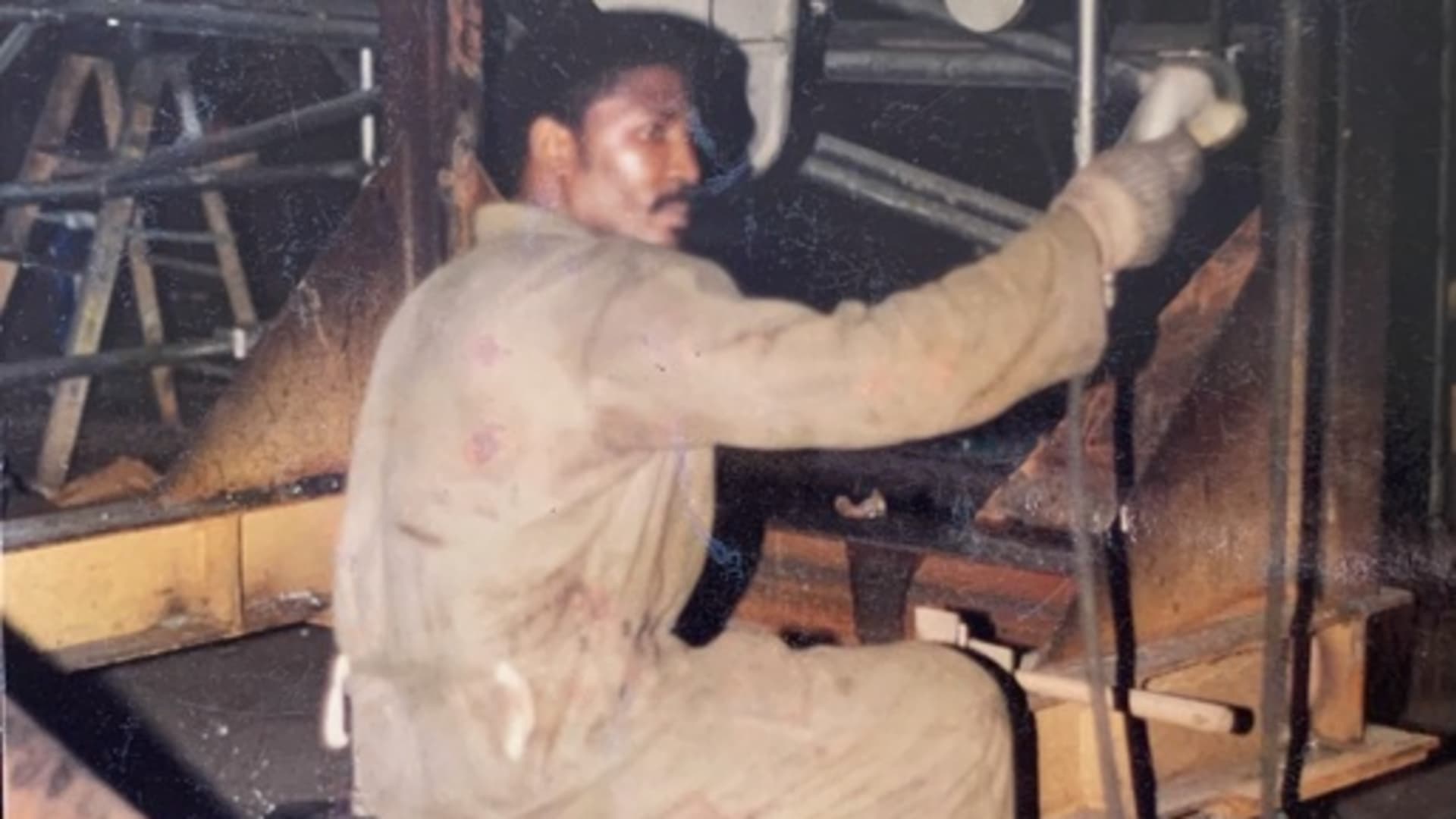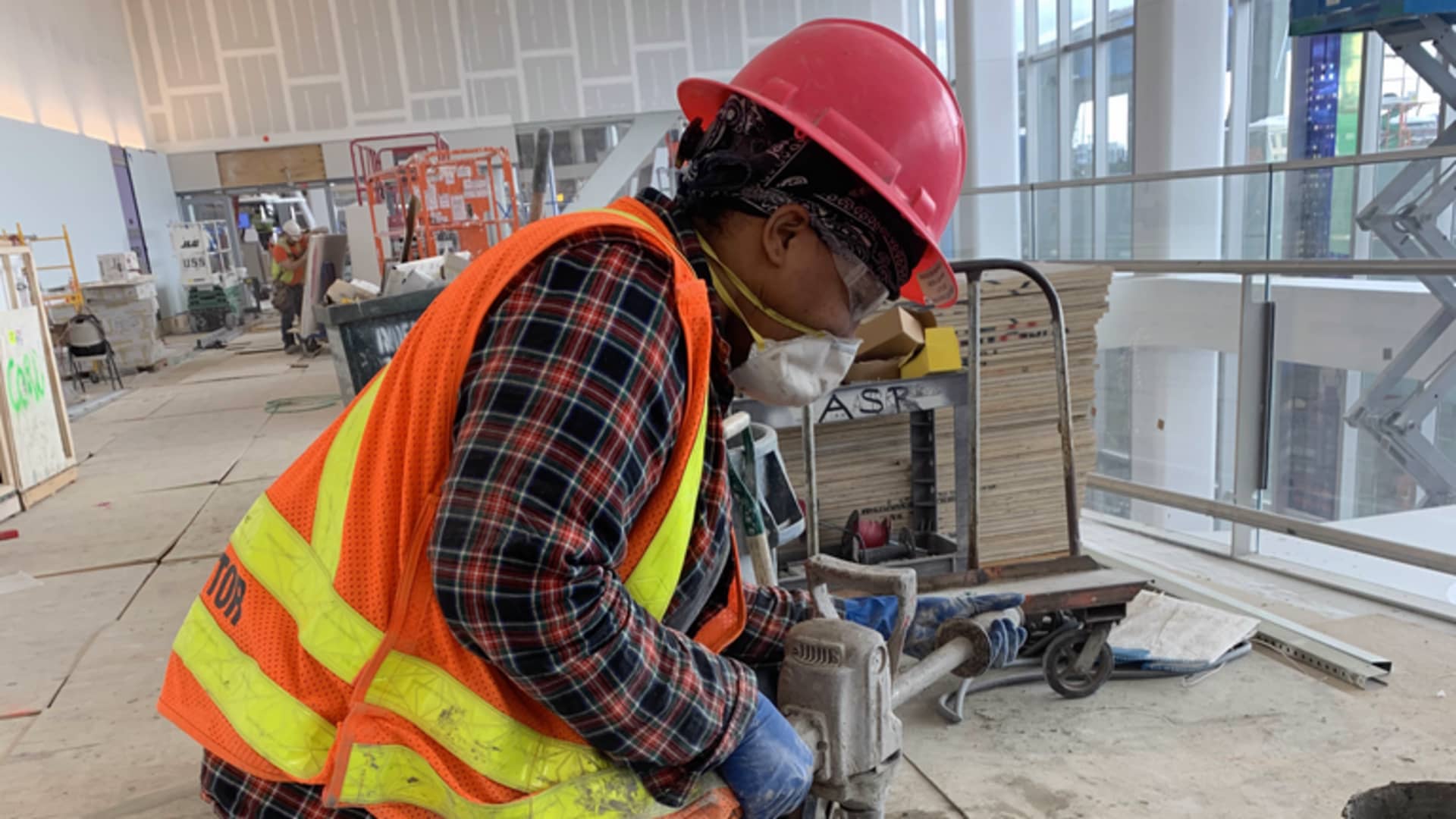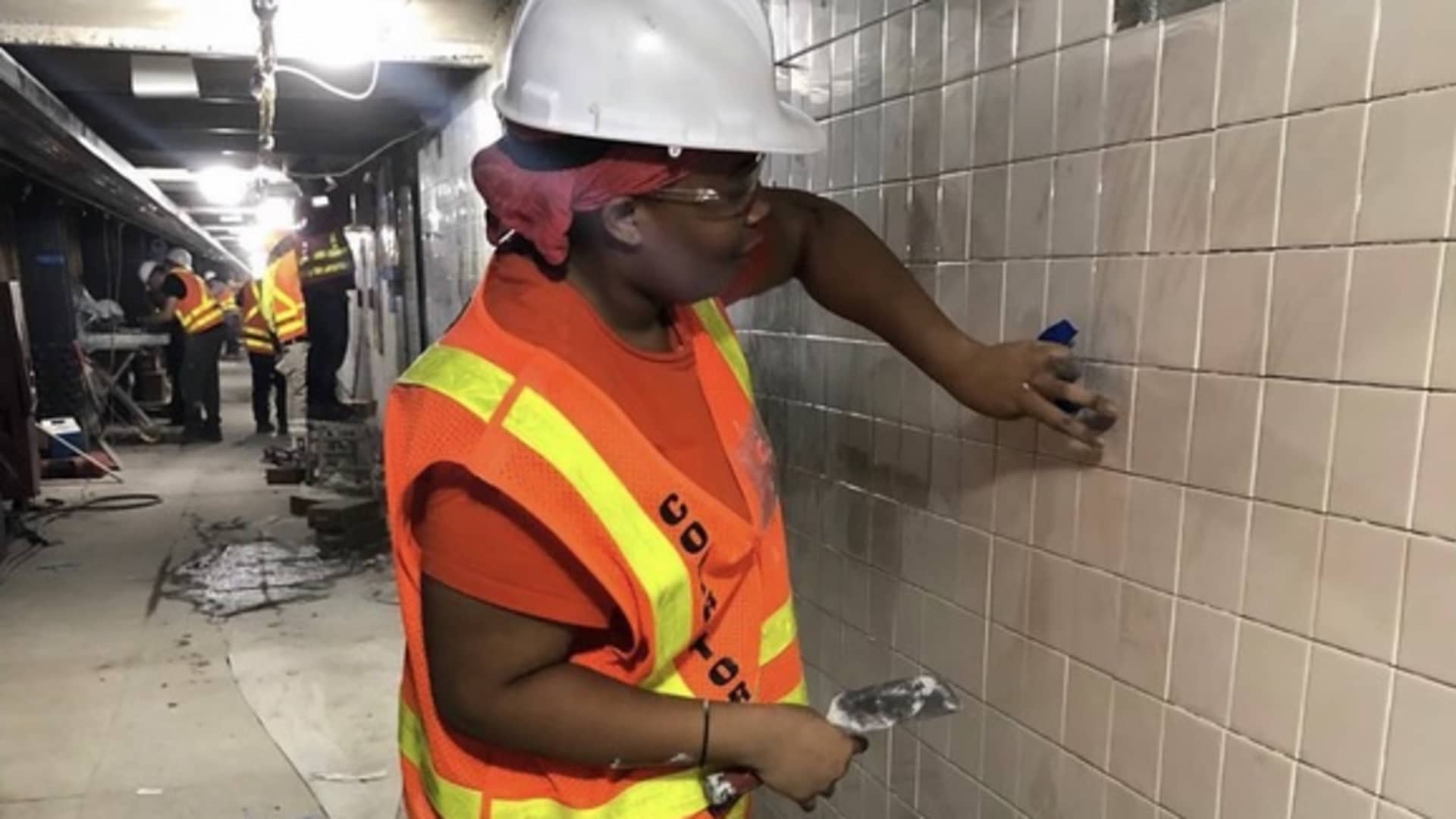
Zandra John is a 28-year-old union tile setter from Flatbush, Brooklyn. But her mother always wanted her to become a teacher.
Three years into earning a bachelor's in secondary education with a minor in English, John was unable to re-enroll in her program because she was behind on her tuition payments. She already owed $5,000 in student loans and was making $12 per hour (about $25,000 per year) as a teacher's assistant.
While she loved working with kids and liked the idea of becoming an English or special-needs teacher, her teaching assistant job did not have benefits and she relied on Medicaid and food stamps.
"I love kids so much, but I felt like something was missing. I wasn't really doing what I wanted to do," says John. "And while I wanted to finish school, I knew $12 an hour would not pay off my loans, it would not help me pay tuition, it really wouldn't do much but help me get by. So I just went on the internet."
She googled high-paying roles and found herself looking at jobs in construction. She quickly thought of her father.

"My dad was a carpenter, he worked in the train stations. And that's really where I started falling in love with building stuff, fixing things around the house. I would always help him. I wanted to have a career in that field, but I wasn't sure if I would be able to," John says. "It's a man dominated field. And usually, they don't want women there."
Money Report
Now, John makes roughly $32 per hour as a tile-setting apprentice. With overtime, she expects to make about $70,000 this year and is working towards becoming a journeyman, who make up to $61 per hour in her union, about $126,880 per year.
"Going from $12 an hour to $32 an hour is a huge difference for me," she says. "I can save more. I can help my mom more."
Getting the job
John's first step into construction was enrolling in a free 7-week training program with Nontraditional Employment for Women (NEW) — a New York-based organization that prepares, trains and places women in careers in skilled construction, utility and maintenance trades.
"That was really the start of a whole nother journey for me. I would TA in the daytime and I would leave there and go straight to NEW," she remembers.
In June 2018, she graduated from the program and began an eight-week pre-apprenticeship program in tile setting that lead to an official apprenticeship. She says she was drawn to the program because it combined her interest in construction with her artistic hobbies.
"One reason why I love tile is because tile and art, they have a connection. A lot of times when we are putting up tiles it's like a mural. We do a lot of murals. We did a flower mural. We did a cloud mural. We did a mural in LaGuardia," she says. "I love art, so the fact that I can incorporate two things that I love is amazing to me."

A day on the job
Of course, John is the first to say that construction tile setting is not a relaxing hobby. The job can include long days with difficult and dangerous physical labor. She describes an accident in which a pile of bathroom stalls fell on her while she was tiling a bathroom floor.
She also says harassment is common.
"They were kind of tough on me my first day, I'm not going to lie. Being the only woman on the job, sometimes it can get weird because the guys are scared to say 'Good morning,' or they stare at you," says John. "Sometimes guys make little comments like, 'Oh, what made you want to be doing this? Shouldn't you be at home?"
A typical day starts around 5:45 a.m. Her commute into Manhattan takes about 40 minutes. John says she arrives at her site around 6:45 and work typically begins between 7 and 7:15 a.m.
"When I get in, I get to work. I go to my gang boss, get my tools," she says. "I get my grinder, make sure I have my water, make sure my wet saw is on and I get on my scaffold."
Tasks can include cutting tile with a saw, mixing "mud" that is used to level floors, laying tile or grouting in-between tiles.
The team gets a coffee break around 9 a.m. and a lunch break around noon. The day typically ends around 3 p.m., unless the team works overtime, which can go into the evening.
Occasionally, work continues through the weekend which is often welcomed since workers earn overtime pay.
"Saturday it's time-and-a-half. Sunday is a double. But sometimes they won't tell you that we're working the weekend," says John. "[Managers] do give work to people they favor or their friends. They do that. So you have to work around it."
Her trick for making sure she knows about potential weekend work is to say "See you tomorrow" on Fridays and gauge people's reactions. Then, she just shows up.
"One time I was working at LaGuardia Airport and they were acting kind of funny," John recalls. After suspecting there would be weekend work, "I got there [on Saturday] and the foreman was laughing, like 'You really came?' I'm like, 'Yeah, I'm coming!"

"I'm going to show you"
While John loves working in construction and appreciates the health and retirement benefits she gets from being a part of her union, she says women — and especially women of color — can face challenges on the job.
"It's already difficult being a woman in construction, but also being a Black woman in construction is very difficult to do," she says. "They'll draw things in the bathroom. They put like, Trump stuff or N-word stuff. Or they would draw a monkey picture or things like that. They even had, when I was at LaGuardia, Nazi stuff in the bathroom."
She continues, "some people really, really go out of their way just to make you feel uncomfortable. I don't understand why."
John says she is grateful to have found allies and mentors who have supported her throughout her apprenticeship, and that she has learned to ignore passing comments.
"I've met some amazing guys in the union. When I'm not working, they lift me up, they talk to me, they ask me if I'm OK, or if I need anything," she says. "But some guys try to bust your chops on purpose, just to make you feel uncomfortable. Sometimes they want to make you feel uncomfortable — like you don't belong here."
"But I want to be here, so I'm going to show you that I belong here."
Do you have a creative or nontraditional career path? We'd love to hear from you! Fill out this form to be considered for a future episode of "On the Job."
Don't miss:






